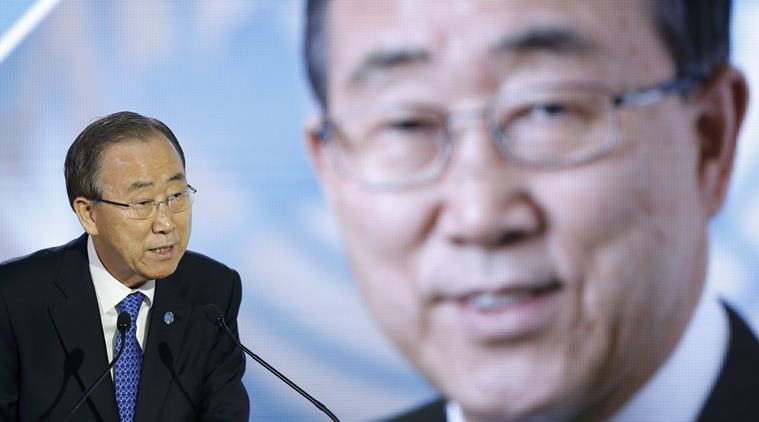-
Tips for becoming a good boxer - November 6, 2020
-
7 expert tips for making your hens night a memorable one - November 6, 2020
-
5 reasons to host your Christmas party on a cruise boat - November 6, 2020
-
What to do when you’re charged with a crime - November 6, 2020
-
Should you get one or multiple dogs? Here’s all you need to know - November 3, 2020
-
A Guide: How to Build Your Very Own Magic Mirror - February 14, 2019
-
Our Top Inspirational Baseball Stars - November 24, 2018
-
Five Tech Tools That Will Help You Turn Your Blog into a Business - November 24, 2018
-
How to Indulge on Vacation without Expanding Your Waist - November 9, 2018
-
5 Strategies for Businesses to Appeal to Today’s Increasingly Mobile-Crazed Customers - November 9, 2018
Success at Paris climate talks ‘not guaranteed’
French Foreign Minister Laurent Fabius announced from the United Nations climate talks in Paris that a final agreement will not be produced from the conference until Saturday, rather than late Friday as scheduled.
Advertisement
A “high ambition coalition” of countries including the European Union, some of the world’s poorest and most vulnerable countries and the US, Chile, Colombia, Mexico, Iceland and Norway has called for a robust climate deal, with Brazil the most recent country to join the group.
The fresh draft negotiating text contains 27 pages two less than the previous one which was released on Wednesday after two days of ministerial consultations.
“We are in the final mode of what separates us from an ambitious, just and durable accord which the world awaits”, Fabius told the media after spending much of the night convincing parties to enter into a final give and take on climate decisions.
It would also see countries aiming to peak climate change-causing emissions as soon as possible, and “undertake rapid reductions thereafter towards reaching greenhouse gas emissions neutrality in the second half of the century”.
Climate finance for poor countries and how to reflect the different responsibilities of developed and developing nations throughout the agreement are also topics of tense discussions.
When dealing with global climate change, we are all ambitious partners, there is no possibility of one rejecting another, Hua said. India, and other developing countries, has always maintained that it is only the developed world that is mandated to provide climate finance, and any contribution from other countries must be kept voluntary and out of any agreement.
Fabius said he would present a compromise text of an agreement on the morning of December 12 in hopes of securing a deal.
On the night between Thursday and Friday, the rich and poor countries were divided by fractious arguments, leaving the organisers with no other option but to extend the deadline.
COP21, which began last November 30, 2015, aims to ink a legally-binding agreement among parties to cap the global temperature rise to either under 1.5 degrees or under 2 degrees Celsius below preindustrial levels.
The Paris conference is the 21st time world governments are meeting to seek a joint solution to climate change.
Earlier conferences had set the goal at keeping global temperatures within 2 degrees of what they had been before the industrial era started.
“If you remove differentiation you create very serious problems for developing countries”. “We will act on climate change”. Small island nations at risk of being inundated by rising seas have been pushing for lowering that goal to below 1.5 degrees C in the Paris agreement. “There’s still more work to be done but at the moment, and things can change by the moment, I would say it looks likely there will be a deal, and it could be quite a historic deal”, he added.
Advertisement
The number of square brackets, indicating significant disagreement, had been reduced to around 50, a major improvement on Saturday when they ran to more than 900.




























